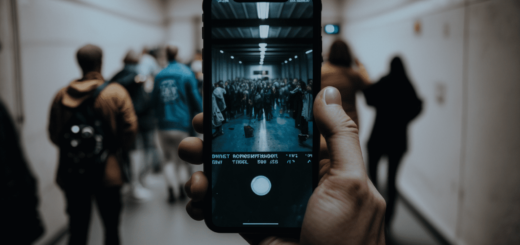The Intersection of Mobile Apps and Human Behavior: Social-Psychological Experimentation Unleashed

In an era where smartphones are more ubiquitous than ever, mobile apps have rapidly emerged as significant shapers of human behavior. They’re not just convenient tools for communication, entertainment, or productivity; they’ve woven themselves into the very fabric of our social and psychological realities. On the other side of the spectrum, social-psychological experimentation, a long-established field, aims to decipher the underlying mechanisms that drive human interaction and cognition. The interplay between these two facets – mobile apps and social-psychological experimentation – heralds a new era of research, with profound implications.
Mobile Apps as Catalysts for Social-Psychological Experimentation
The onset of mobile applications has revolutionized social-psychological experimentation. By harnessing the power of these apps, researchers can access unprecedented real-world data, enabling them to understand human behavior in ways never seen before. Several advantages make mobile apps a potent tool for experimentation:
- Universality: With widespread smartphone usage, a large and diverse population can be sampled.
- Real-time Data Collection: Mobile apps can track user behavior in real time, providing valuable dynamic data.
- Ecological Validity: Studies conducted in naturalistic settings yield more authentic results.
Unleashing the Insights: Case Studies of Mobile App-Based Experiments
There are numerous examples of successful mobile app-based experiments that have provided illuminating insights into human behavior. Notable among these is the “Mappiness” project, which used a smartphone app to collect real-time happiness data from thousands of users. Similarly, a study using the “Track Your Happiness” app identified factors contributing to human well-being. Key findings from these experiments include:
- Influence of Environment: Location and time significantly impact emotional states.
- Social Connectivity: Positive interactions via mobile apps enhance overall well-being.
Understanding Human Behavior in the Digital Age
According to a research article published in the journal Human-Computer Interaction, mobile apps have the potential to nudge users towards particular behaviors. Through various design features and persuasive techniques, mobile apps can influence user behavior and encourage specific actions or choices. Insights from such research shed light on how:
- Mobile apps can nudge users towards particular behaviors.
- Digital spaces have become platforms for the expression and negotiation of identity.
- The use of mobile apps impacts attention spans and cognitive capacities.

Ethical Considerations and Responsible Experimentation
Despite its promise, the use of mobile apps for social-psychological experimentation isn’t without ethical implications. It’s crucial to ensure participant privacy and secure informed consent, and there’s a growing need to consider:
- Data Privacy: As mobile apps collect extensive personal data, mechanisms should be in place to protect this information.
- Informed Consent: The process should be transparent, and participants should fully understand what their participation entails.
Future Directions and Implications for Society
The potential of mobile app-based experimentation extends beyond academia and into societal applications. Whether it’s implementing health interventions or understanding collective behaviors during crises, these methods have wide-ranging implications. Future directions include:
- Development of apps specifically designed for social-psychological research.
- Utilization of these techniques for public policy design and implementation.
Conclusion
In summary, the intersection of mobile apps and social-psychological experimentation brings forth a dynamic landscape of research and understanding. The convergence of these two domains has not only created a potent tool for researchers but also paved the way for a deeper comprehension of human behavior in the context of the digital age. As we navigate this fascinating intersection, we stand at the precipice of a revolution in understanding ourselves and shaping our collective future. The way forward promises to be transformative, blending technological innovation with the age-old quest to unravel the complexities of the human mind. Also, in addition to this article, we recommend that you read our article on how mobile applications contribute to personal growth and achievement of goals.
FAQ
Mobile apps offer several advantages for social-psychological experimentation, including access to a large and diverse population due to the ubiquity of smartphones (universality). They allow real-time data collection, providing dynamic insights into human behavior as it happens. Additionally, they support ecological validity as experiments conducted in naturalistic, real-world settings yield more authentic results.
Two notable examples of mobile app-based experiments include the “Mappiness” project and the “Track Your Happiness” app. The Mappiness project used an app to collect real-time happiness data from users, revealing that location and time significantly impact emotional states. The Track Your Happiness app was used to identify factors that contribute to human well-being, demonstrating that positive interactions via mobile apps can enhance overall happiness.
Key ethical considerations when using mobile apps for social-psychological experimentation include data privacy and informed consent. Given that mobile apps collect extensive personal data, it’s important to have mechanisms in place to protect this information. Also, the process of securing informed consent should be transparent, ensuring participants fully understand what their participation entails.

